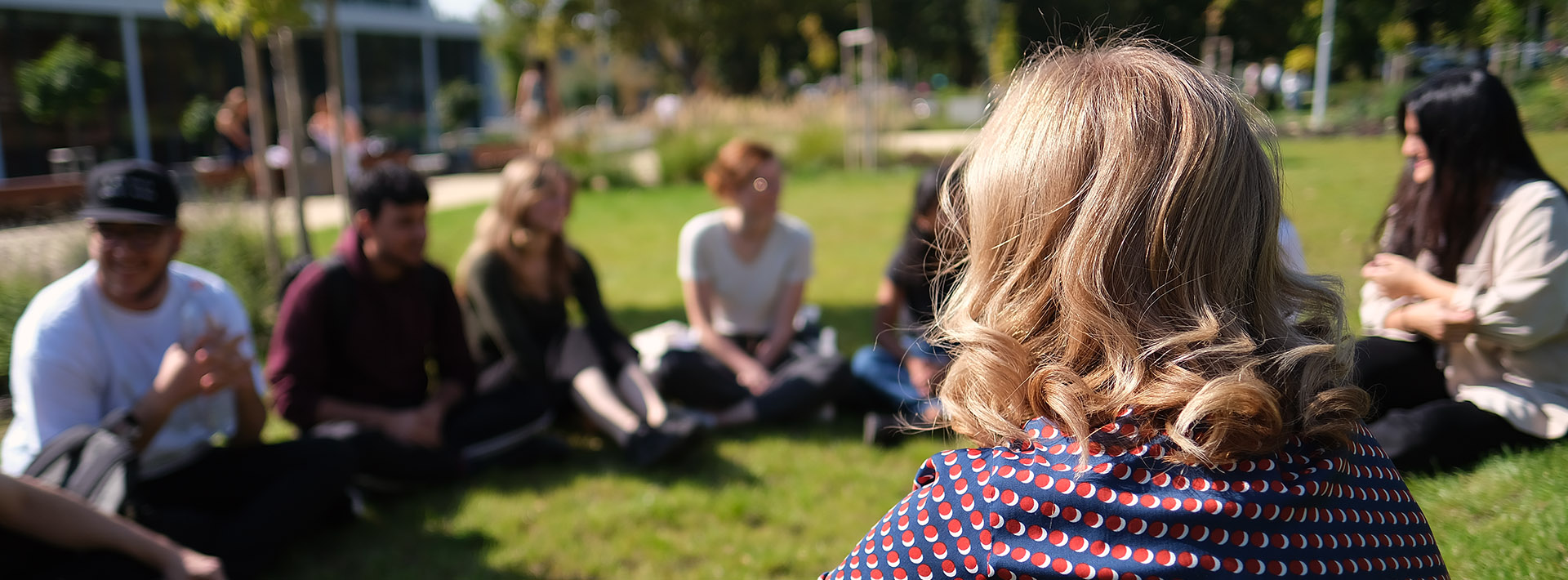Data
Official data in SubjectManager for the following academic year: 2024-2025
Course director
-
Fekete Judit Diána
research associate professor,
Department of Languages for Specific Purposes -
Number of hours/semester
lectures: 0 hours
practices: 12 hours
seminars: 0 hours
total of: 12 hours
Subject data
- Code of subject: OXF-N79-fa-T
- 1 kredit
- Dentistry
- Optional modul
- autumn
-
Exam course:Course headcount limitations
min. 5 – max. 15
Topic
The aim of the course is to prepare students to acquire skills and competences necessary in their everyday communication as physicians, improving their communication skills by the use of medical improvisation and also to improve their English for medical purposes. Medical Improv is the practice of improvisational theater philosophy and techniques applied to the unique challenges and environment of healthcare. It helps students to think out of the box while staying in the moment to turn them into sharper listeners, better collaborators and more empathic people. it forces them to think on their feet, which is important as physicians need to prepare for the unpredictable. It helps students to discover interpersonal strengths and shortcomings through the power of improvisation while they practice their verbal skills in English at the same time.
Lectures
Practices
- 1. What is Applied Improv, what is Medical Improv and why we need it, how this approach is different - Fekete Judit Diána
- 2. Communication and behavior according to the core principles of improvisation - Fekete Judit Diána
- 3. Core principles of medical improv, emotional intelligence and communication as the underlying components of behavior (and how they affect patient safety, patient experience and workforce health) - Fekete Judit Diána
- 4. Syncing with each other (physical and verbal) - effective communication - Fekete Judit Diána
- 5. Observation and active listening skills - Fekete Judit Diána
- 6. What's the relationship? The importance of collaborative behavior - Fekete Judit Diána
- 7. Help your partner, the importance of teamwork, partnership with flexibility - Fekete Judit Diána
- 8. Accept this! recognizing emotional tones in others, developing the ability to manage one's own emotions - Fekete Judit Diána
- 9. Reading minds, empathy, theory of mind in healthcare situations - Fekete Judit Diána
- 10. Sharing responsibility, avoiding power struggle, assertiveness, making mistakes - Fekete Judit Diána
- 11. Exercises, practice - Fekete Judit Diána
- 12. Exercises, practice, discussion - Fekete Judit Diána
Seminars
Reading material
Obligatory literature
Literature developed by the Department
Notes
Recommended literature
Impro: Improvisation and the theatre, by Keith Johnstone
Medical Improv: Learning Experiences that promote Safe Care, patient satisfaction and rewarding careers, Youtube by Beth Boynton, Stephanie Frederick and Judy White
Marianne Schmid Mast and Gaetan Cousin: The Role of nonverbal communication in Medical interactions: Empirical results, theoretical biases, and methodological issues, The Oxford Handbook of Health Communication, Behaviour Change and treatment adherence (2013) edited by Leslie R. Martin and M. Robin DiMatteo
Conditions for acceptance of the semester
-
Mid-term exams
Create your own role play / script based on what you have learned
Making up for missed classes
Specified by the course leader on a case-by-case basis
Exam topics/questions
-
Examiners
Instructor / tutor of practices and seminars
- Eklicsné Lepenye Katalin
- Fekete Judit Diána
- Kanizsai Péter László
- Szántóné Csongor Alexandra
